Various studies have confirmed the numerous advantages of non-motorized transportation (NMT) especially on the environment and personal well-being of the commuter. Unfortunately its transportation modal share has always been negligible in the Philippines. Recently, the rapid rise in the price of oil and an overwhelming increase in environmental awareness have resurrected the interests of commuters, policymakers and transport planners on the use and promotion of NMT. This study analyzes the Philippine case by reviewing its overall NMT-related transport policies at the national and local levels and by investigating the use of pedicabs and bicycles in the country. The results reveal various sporadic initiatives in the promotion, use and regulation of NMT. Issues such as the lack of both hard and soft infrastructure (physical facilities and policies, respectively) serve as major impediments in the growth and development of NMT in the country. The challenge is to encourage different stakeholders in promoting NMT.
Pedicabs in Philippines:
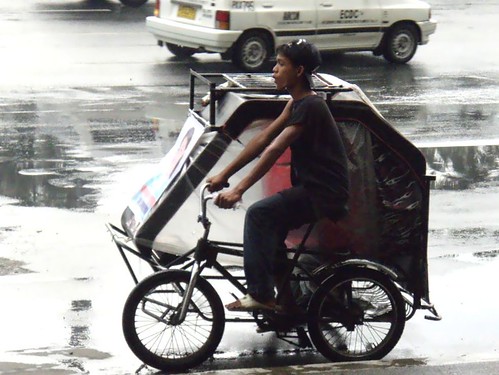
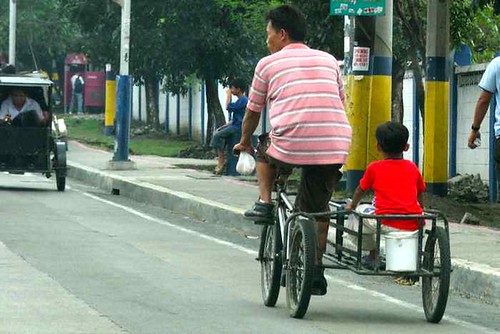
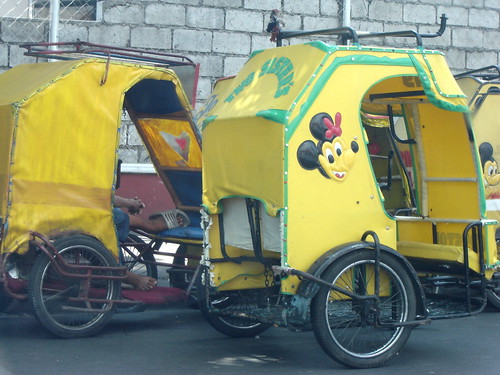
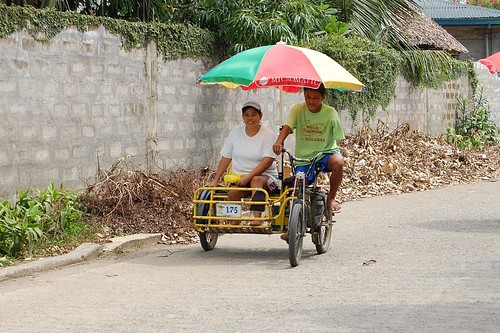
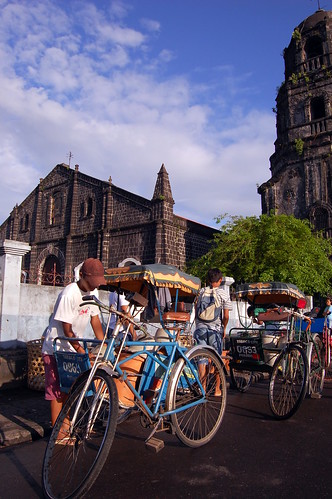
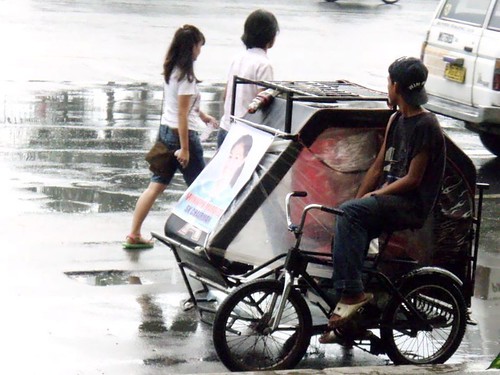
more about sustainable transportation:
No comments:
Post a Comment